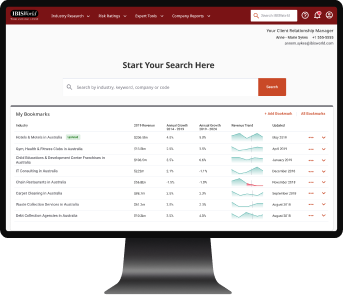STATE ECONOMIC PROFILE
Minnesota Economic Overview
$394.7b
GROSS STATE PRODUCT
Growth Rate 2019-24
State Growth Rank
1.4%
36
5,755,899
POPULATION
Growth Rate 2019-24
State Growth Rank
0.4%
29
665,226
BUSINESSES
Growth Rate 2019-24
State Growth Rank
1.9%
37
Overview of the Minnesota Economy
In 2024, the state of Minnesota has a population of 5,755,899, having grown an annualized 0.4% over the five years to 2024, which ranks it 29th out of all 50 US states by growth rate. Minnesota's gross state product (GSP) in 2024 reached $394.7b, with growth of 1.4% over the 5 years to 2024. Businesses in Minnesota employed a total of 3,305,990 people in 2024, with average annual employment growth over the past five years of 0.2%. The top three sectors by total employment are Real Estate and Rental and Leasing, Manufacturing, Healthcare and Social Assistance, while the unemployment rate across the state in 2024 was 3.4%.
What is Minnesota's Gross Domestic Product (GDP)?
In 2024, Minnesota's GDP reached $394.7b, representing an increase of 1.4% from 2023. Minnesota's GDP has grown at an annualized rate of 2.9% over the five years to 2024. Moreover, Minnesota's trailing five-year GDP growth ranks it 36th out of all 50 US states.
State GDP, or Gross State Product, is a measurement of a state's output, or the sum of value added from all industries in the state. It is a common indicator used to track the health of a state's economy.
You can track trends in Minnesota's GDP, and compare them to the national average, using the chart below.
STATE ECONOMIC PROFILE
Minnesota Industry Trends
What are Minnesota's Largest Industries by Revenue?
The largest industries by revenue in Minnesota are Life Insurance & Annuities, Health & Medical Insurance and Commercial Banking, which generated $48.0b, $43.9b and $38.5b in 2024.
STATE ECONOMIC PROFILE
Top Companies in Minnesota
Top 10 Companies Headquartered in Minnesota by Employment
The largest companies by employment in Minnesota are State of Minnesota, Target Corp and Walmart Inc., which employed 50,000, 25,000 and 24,672 people in 2024.
STATE ECONOMIC PROFILE
Minnesota Sector Statistics
In Minnesota, certain sectors drive a higher share of state GDP and employ more workers than others. However, simply looking at raw numbers doesn't always tell the whole story. Factoring in the current year growth percentage, in addition to the annualized growth percentage over the past five years, will give you a deeper understanding of the economic situation.
What is Minnesota's GDP by Sector?
The Real Estate and Rental and Leasing, Manufacturing and Healthcare and Social Assistance sectors contributed the most to Minnesota's GDP in 2024, representing a combined 37.5% of state GDP.
GDP trends by sector are an important indicator of which sectors are contributing the most value-add to the state's economy, in addition to how the state economy is evolving over time.
What is Minnesota's Employment by Sector?
The Healthcare and Social Assistance, Retail Trade and Manufacturing sectors contributed the most to employment in Minnesota in 2024, representing a combined 36.8% of state employment.
Employment trends by sector are an important indicator of which sectors are growing or contracting most rapidly relative to the state economy as a whole.
STATE ECONOMIC PROFILE
Minnesota Employment Trends
3.3m
EMPLOYMENT
Growth Rate 2019-24
State Growth Rank
0.9%
7
3.4%
UNEMPLOYMENT
Growth Rate 2019-24
State Growth Rank
0.6%
29
What Employment Trends are Impacting Minnesota?
The state of Minnesota employs 3,305,990 people in 2024, which ranks it 17th out of all 50 US states. Employment in Minnesota has grown at an annualized rate of 0.9% over the five years to 2024, underperforming the national average of 1.2%. Major sectors by employment in Minnesota include Healthcare and Social Assistance, Retail Trade and Manufacturing, which employed 541,421, 384,958 and 291,083 people in 2024, respectively. Minnesota's unemployment rate is 3.4% in 2024, which ranks it 18th out of 50 states. Minnesota's unemployment rate has trended upwards at a rate of 0.6% over the five years to 2024, overperforming the US economy as a whole. Employment trends indicate the degree of tightness or slack in labor markets, in addition to the overall strength of an economy. Faster employment growth typically indicates a strong and growing economy, while lower unemployment tends to imply tightness in labor markets.
You can track unemployment trends in Minnesota, and compare them to the US economy, using the chart below.
PER CAPITA DISPOSABLE INCOME
Growth Rate
State Growth Rank
PER CAPITA CONSUMPTION EXPENDITURE
Growth Rate 2013-18
State Growth Rank
What is Minnesota's Per Capita Disposable Income?
STATE ECONOMIC PROFILE
Minnesota Construction & Building Trends
NONRESIDENTIAL CONSTRUCTION
Growth Rate
State Growth Rank
RESIDENTIAL CONSTRUCTION
Growth Rate
State Growth Rank
BUILDING PERMITS
Growth Rate
State Growth Rank
What can construction trends tell you about a state’s economy?
STATE ECONOMIC PROFILE
Minnesota Population Statistics
Which Counties in Minnesota have the Largest Populations?
STATE ECONOMIC PROFILE
Minnesota Demographics
Education Level
Race in
Minnesota State Industry Reports
IBISWorld State Industry Reports help you quickly understand how an industry performs at the state level compared with the national level by providing accurate and unbiased industry information with a local focus. Use this collection to:
- Discover key local industry trends
- Identify threats and opportunities at the subnational level
- Inform your business strategies and planning
See our list of 650 Minnesota Industry Reports.
